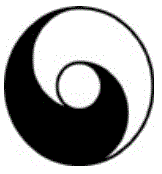Le Guanzi - Extraits
Le Guanzi est un recueil de textes attribués à l'école de Guan Zhong qui traitent de sujets très variés. Particulèrement éclectique, il intègre des idées d'inspirations non seulement confucéenne ou taoiste mais aussi légiste ou encore issues de l'école des noms, Xí Míng Jiā,... Il aurait été fort apprécié au IV et IIIème siècle. Dans la forme à notre disposition le recueil a probablement été composé entre le IVème et le début du IIème siècle avant J.-C. Certains spécialistes présument que le présent chapitre, Nèi Yě, a été publié entre 320 et 280 avant J.-C.
Le Guanzi est un recueil de textes attribués à l'école de Guan Zhong qui traitent de sujets très variés. Particulèrement éclectique, il intègre des idées d'inspirations non seulement confucéenne ou taoiste mais aussi légiste ou encore issues de l'école des noms, Xí Míng Jiā,... Il aurait été fort apprécié au IV et IIIème siècle. Dans la forme à notre disposition le recueil a probablement été composé entre le IVème et le début du IIème siècle avant J.-C. Certains spécialistes présument que le présent chapitre, Nèi Yě, a été publié entre 320 et 280 avant J.-C.
|
Nèi Yě - Affaires internes
|

Notion de Qing Guanzi Zhong Yong Zhi Anthropologies du corps
